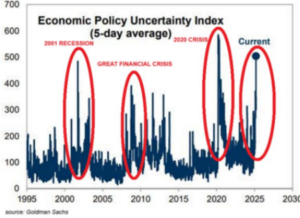An Accredited Investment Fiduciary (AIF) is legally obligated to always act in the best interests of their clients. They offer recommendations based on each client’s unique goals rather than prioritizing commissions, kickbacks and referral fees that solely benefit them.
AIF holders are highly competent in fiduciary responsibility and know how to communicate a commitment of fiduciary excellence. The AIF designation involves a rigorous training program with a closed-book final exam under a proctor’s supervision. It also requires a long-term commitment to the Code of Ethics and Conduct Standards.
Designees receive the knowledge and skills they need to evaluate the fiduciary practices of investment vehicles such as 401(k) plans and defined benefit plans. They also support those who manage endowment and foundation assets.
Should You Hire an AIF?
An AIF can benefit you if you’re an individual investor. If you’d like sound advice from an advisor who genuinely values your success and has your best interests at heart, they are certainly worth considering. No matter what type of investment vehicles you use or hope to use to meet your retirement or other long-term goals, they can help.
Also, an AIF will leave a paper trail as the designation reinforces documentation best practices. In the event you ever have a question or concern about your investments, they’d be able to show and explain their work.
By hiring an AIF, you can enjoy the peace of mind of knowing that the recommendations offered to you can truly place your interests first over the compensation they receive. You’ll feel confident in knowing the advisor you’ve chosen is motivated by your long-term success instead of how much money they can earn from your investments.
What Does it Take to Earn and Maintain the AIF?
Those who hope to earn the AIF designation must fulfill certain requirements set forth by Fi360, Inc., which is an organization that specializes in fiduciary education, designations, and software. Here’s a brief overview of what that they are.
AIF Training Requirements
To become an AIF, candidates must participate in an extensive training program. There are three training options including:
- Online: The online version is self-paced and often selected by those who lead busy lives and prefer to complete the training around their own schedule.
- Blended Learning: Blended learning is a combination of online and in-person classroom training.
- Virtual: Virtual training involves five, two-hour live training sessions.
AIF Exam
Once they complete the training program via the online, blended learning, or virtual option, candidates must sit for the closed-book exam. The exam features 80 multiple-choice questions and must be completed in two hours. Each question is organized in one of the following four content areas:
- Organize. Fiduciary Roles and Responsibilities Are Clearly Documented and Defined
- Formalize. The Investment Policy is Consistent with the Portfolio’s Objectives and Risk and Return Assumptions
- Implement. Decisions Regarding Investments and Services are Implemented in Accordance with the Duties of Loyalty and Care
- Monitor. The Portfolio is Monitored Regularly to Ensure Consistency with Benchmarks and Overall Objectives
A minimum score of at least 70% is required for candidates to pass and receive the AIF designation.
AIF Continuing Education
AIF holders must renew their certification every year. To do so, they are required to accrue six hours of continuing professional education, with at least four hours from Fi360 sources. In addition, they must maintain their current contact information in Fi360’s database, attest to a code of ethics, and remit $325 in annual dues.
What is the Accredited Investment Fiduciary Analyst (AIFA) Designation?
Once a financial advisor has earned their AIF designation, they may choose to complete additional coursework to attain the Accredited Investment Fiduciary Analyst (AIFA) designation. Advisors who have earned their AIFA designation are certified to assess if internal policies, procedures, and workflows meet the fiduciary standard of excellence.
Additional coursework consists of self-study work followed by an instructor-guided series of virtual sessions totaling 6 hours to complete, according to FI360.
Written by Brian Thorpe of Wealthtender
https://wealthtender.com/professional-designations/what-is-an-accredited-investment-fiduciary-aif/



